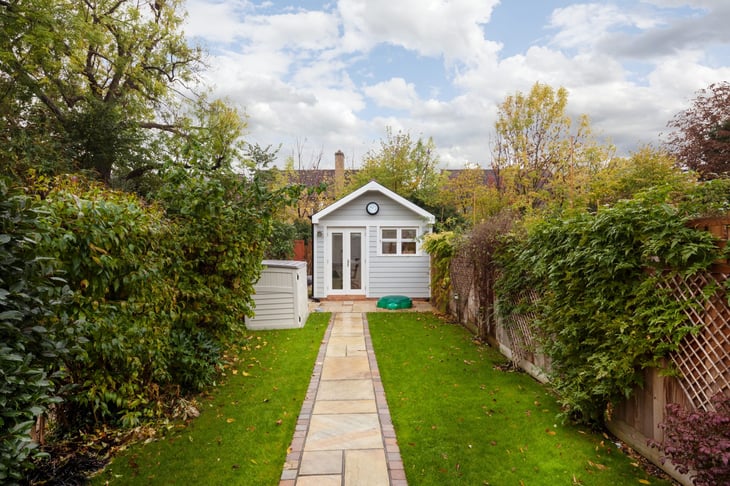
Although many employees returned to the office after the COVID-19 pandemic, some continue to work remotely. Finding a dedicated space to work, however, might prove difficult, depending on the size of your home.
If you have some space outside, one option is to buy or build a shed to use as your workspace instead of adding on a new addition to your home.
The following questions will help you determine if you can deduct the cost of your home office shed — or any other form of home office space — on your federal income taxes.
Are you a contractor or an employee?
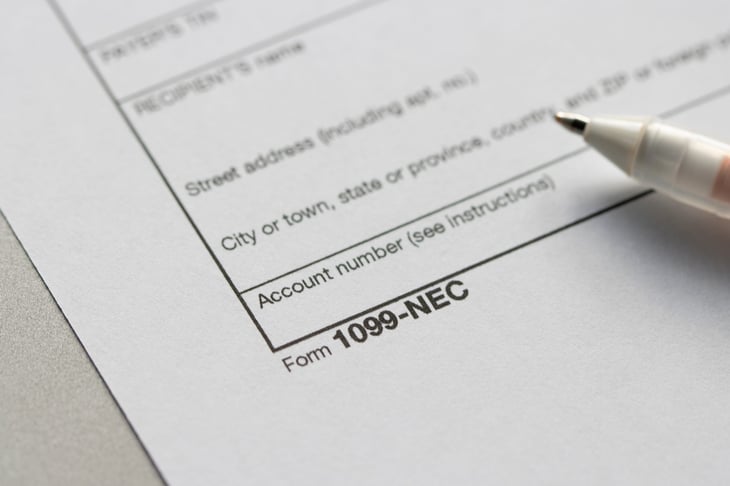
Before you invest in a shed or other office space that you hope to deduct on your taxes, know what type of worker you are in the eyes of Uncle Sam.
If you are an employee of a company, meaning that you receive a Form W-2 wage statement from your employer at the start of every tax season, you cannot deduct any expenses associated with a home office.
If you work as a contractor and thus receive Form 1099s, if you are otherwise self-employed or if you own your own business, then you can deduct qualifying home office expenses at tax time. Just be sure to keep record of your expenses, mileage and other business costs, as we detail in “6 Things Every Self-Employed Worker Should Know About Taxes.”
Do you use it exclusively and regularly for work?
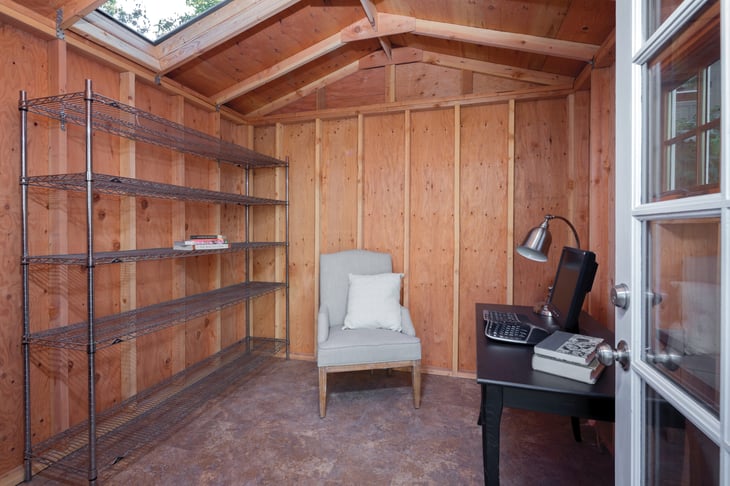
Generally, your home office shed, or any other space you’re using as your home office, must be used exclusively and regularly for business in order to deduct any expenses associated with its use. This means your “office at home” must also be considered the principal place you conduct business. It cannot double as, say, a guest room or otherwise be used for personal purposes.
If you meet those requirements, then you’ll use Form 8829 to deduct your home office expenses and submit the form with your federal income tax return.
Do you store inventory in your shed?
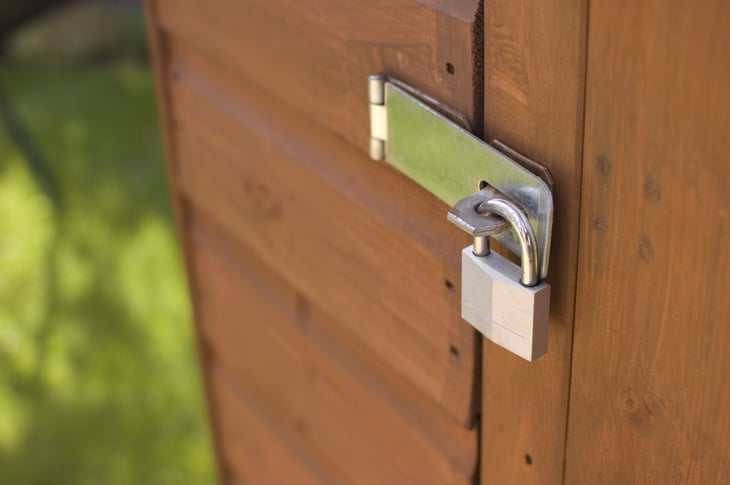
There is an exception to the exclusive-use test for the storage of inventory or product samples. In other words, if you keep such items that are used in your business in your shed, you might be able to deduct the costs associated with that storage space — even if you don’t use the shed exclusively for business.
But you do need to meet all the following criteria, as detailed in IRS Publication 587:
- “You sell products at wholesale or retail as your trade or business.
- You keep the inventory or product samples in your home for use in your trade or business.
- Your home is the only fixed location of your trade or business.
- You use the storage space on a regular basis.
- The space you use is a separately identifiable space suitable for storage.”
Is your shed permanent?
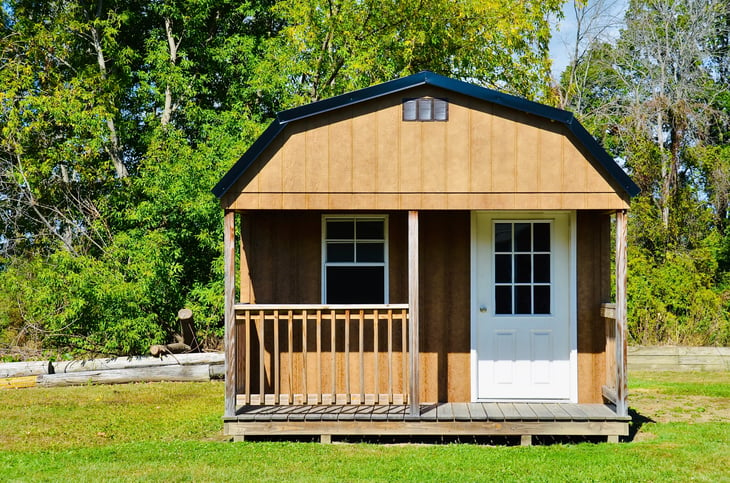
Sheds come in different sizes and materials. They can be non-permanent structures, such as an “off-the-shelf” model from a home improvement store that you set in your yard and can relocate if you wish — or sheds can be permanent buildings, such as attached to your home or having their own foundations.
Whether your shed is permanent may affect how you can deduct the cost of the shed itself on your taxes.
If it’s not permanent, then the IRS might allow you to take what’s known as a section 179 deduction, meaning you can deduct the full cost of the shed in whatever tax year you purchase it.
If your shed is a permanent building, then it will be considered a capital asset, an improvement to your home. That means you will have to deduct a portion of the cost each year over a period of time, which is a type of tax break known as depreciation.
Don’t have a shed?

You can still deduct your indoor home office even if you don’t have a shed or other separate structure — provided that you use the space exclusively and regularly for business purposes, of course.
The IRS offers what it calls a simplified method for deducting the costs associated with home office space. To figure the amount of the deduction this way, you generally multiply $5 by the number of square feet of your home that you use exclusively for business, up to 300 square feet. (The IRS offers a Simplified Method Worksheet in Publication 587 with more details.)





Add a Comment
Our Policy: We welcome relevant and respectful comments in order to foster healthy and informative discussions. All other comments may be removed. Comments with links are automatically held for moderation.